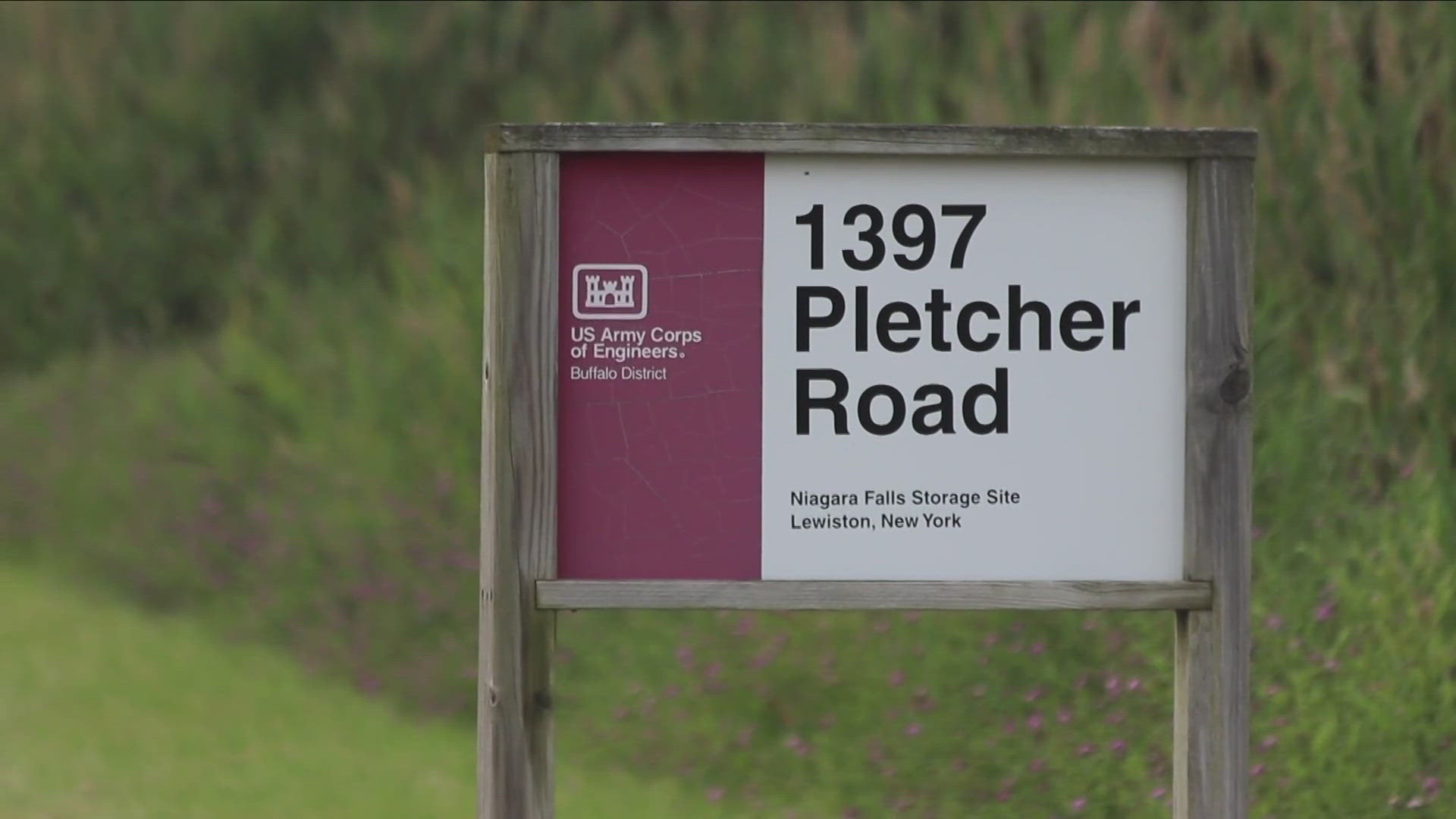TONAWANDA, N.Y. — Two sites in Western New York that have been home to Manhattan Project radioactive waste for decades will be bustling with activity in the coming months.
The Seaway Site in the Town of Tonawanda and Niagara Falls Storage Site will begin two separate project in May and July respectively.
Seaway Site
Buried beneath a non-descript strip of land next to the Ashland oil refinery along River Rd. in the Town of Tonawanda are thousands of cubic yards of radioactive material. The Seaway Site, as it's known, is the latest to soon see remedial work conducted.
The U.S. Army Corps of Engineers (USACE) awarded a $17.6M contract to Mark Cerrone Inc. with the goal of installing a 22-acre cap over parts of the landfill. The funding is part of the Formerly Utilized Sites Remedial Action Program(FUSRAP) initiative, designed to meticulously clean up former Manhattan Project sites.
Radioactive material produced in Western New York, most of which was produced at the Linde facility in Tonawanda, has been buried at the site for the last 50 years.
"There's been a mixture of materials, including materials from the atomic weapon development phase that were kind of commingled and brought to that site and placed there," said USACE project manager Richard Whipple. "We have to evaluate that and figure out what the remedy is to complete that and make it safe for for the public."
Unlike other Manhattan Engineering District (MED) sites in Western New York, the material at the Seaway Site is not being removed. The Army Corps, according to their 2009 record of decision, determined that the material was best kept at the site and reinforced with a new cap.
"We determined that providing the blanket and the covering was the best determination for for everyone safety, and especially the human health, the people that live around there," Whipple said.
Not everyone is thrilled the material will remain in Tonawanda for at least the next millennium.
"I have a little bit of an issue that they're just doing a cap on it," said Town of Tonawanda Supervisor Joseph Emminger. "I'd like to personally have the radioactive materials from the Manhattan Project removed completely, but that ship has sailed."
According to the Army Corps of Engineers, the material can not penetrate the commercial landfill it currently sits in, and there is no danger to the public.
"It's not an ideal situation," Emminger said. "The good news is is that it's an industrial area."
Niagara Falls Storage Site
Phase 1 of the remediation of the Niagara Falls Storage Site (NFSS) in Lewison is set to begin in July. As 2 On Your Side reported, the remediation at NFSS will begin with top layer soil removals at the site of the former Lake Ontario Ordnance Works.
During a public meeting in Lewiston on Tuesday night, staff from the USACE shared the route trucks will take in order to remove the waste.
"It's on its way to Michigan at a licensed disposal facility, " said Brent LaSpada, project manager for the Niagara Falls Storage Site. "We're avoiding going past the school, and we're not going over the Tuscarora land."
According to the USACE, when removal begins in July, trucks will depart the property and drive south through Model City and connect to Ridge Rd. The trucks will then drive east to connect to Townline Rd and continue south in order to bypass the Tuscarora Nation.
Trucks carrying the waste will then turn west at Lockport Rd in order to connect to Packard Rd and eventually the I-190.
"The trucks are all going to be decontaminated as they leave the site and they're going to be lined trucks for maximum safety," LaSpada said. "So no stone left unturned for delivering the material safely to Michigan."
Phase 1 is expected to take at least a year.
The bigger project is the removal of radioactive waste at the Interim Waste Containment Site on the NFSS property. The Army Corps is still working on the design phase for that project, which is expected to be completed by 2027. The total cost of remediating the NFSS is over $500M.

